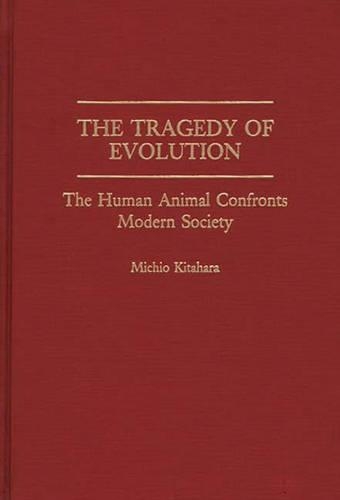
The Tragedy of Evolution: The Human Animal Confronts Modern Society
(Hardback)
Publishing Details
The Tragedy of Evolution: The Human Animal Confronts Modern Society
By (Author) Michio Kitahara
Bloomsbury Publishing PLC
Praeger Publishers Inc
30th October 1991
United States
Classifications
Tertiary Education
Non Fiction
Evolution / Evolutionary biology
Philosophical traditions and schools of thought
304.5
Physical Properties
Hardback
208
Description
In this examination of problems in the modern world, Michio Kitahara argues that a logical inconsistency in the philosophy of enlightenment has caused humans to approach their environment in a way that is inconsistent with their biological background. Human biological and cultural evolution has created a form of suffering that derives in part from Western civilization's simultaneous acceptance and rejection of human variation. Both specialists and the general public assume that evolution is good and desirable, but Kitahara's analysis suggests the opposite: that evolution itself is tragic. In his analysis of human evolution, Kitahara discusses deviant and criminal behaviour, social conflict, liberalism and the nature of Western civilization. He holds two axiomatic assumptions: that humans are characterized by "stimulus seeking behaviour" accompanied by the manipulatory drive, and that humans are characterized by physical, psychological and cultural variation. He argues that the tyranny of the majority and the technology we have developed deny human variation, and that the drive to manipulate the environment is the wellspring of modern, sociocultural phenomena.
Author Bio
MICHIO KITAHARA is Director of the Nordenfeldt Institute in Gothenburg, Sweden. He is author of Children of the Sun: The Japanese and the Outside World, Axiomatic Theory of Balance: A Study of Self in the Sociocultural Environment and numerous monographs and journal articles on culture.
